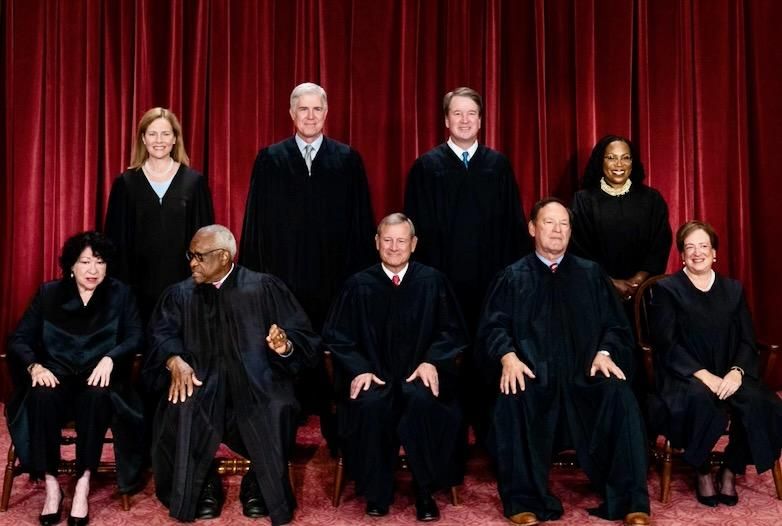A Marquette University Law School poll released on May 24 found that only 41 percent of Americans approve of the U.S. Supreme Court's performance. And a Quinnipiac University poll released around the same time was even more damning, with public approval of the High Court down to 35 percent.
These polls came as no surprise, as many surveys before them also found that the Court's popularity has sunk to historic lows — a fact that can be attributed to everything from the overturning of Roe v. Wade to ProPublica's bombshell series of articles on Justice Clarence Thomas' relationship with billionaire GOP megadonor Harlan Crow.
Despite all these controversies, the Roberts Court has adamantly resisted calls to adopt an ethics code. Legal scholar Erwin Chemerinsky, in an op-ed/essay published by the New York Times on June 12, argues that the only solution is for Congress to impose one. The "ethics mess" plaguing the Court, according to Chemerinsky, is "inexcusable" and demands action from lawmakers.
Chemerinsky, dean of the University of California, Berkeley Law School, argues, "The issue has taken on urgency after a recent investigation by ProPublica revealed that Justice Clarence Thomas has, over the years, accepted lavish trips and other gifts from a major Republican donor. Similar calls for ethics rules followed a report last fall in The New York Times of allegations that a landmark 2014 contraception decision 'was prematurely disclosed through a secretive influence campaign by anti-abortion activists.'"
00:06
02:
The legal scholar notes that opponents of an ethics code for the High Court claim it would "violate the separation of powers." But Chemerinsky argues the "separation of powers does not mean that one branch of government operates entirely independent of the others."
"Congress, for example, regulates many aspects of the Supreme Court, including its size, the salary of the justices and its budget," the dean explains. "Congress has also long imposed financial reporting requirements on the justices and limits on the gifts and outside income they can receive, though as the chief justice noted in 2011, 'The Court has never addressed whether Congress may impose those requirements on the Supreme Court.'"Leave a Comment
Related Post
